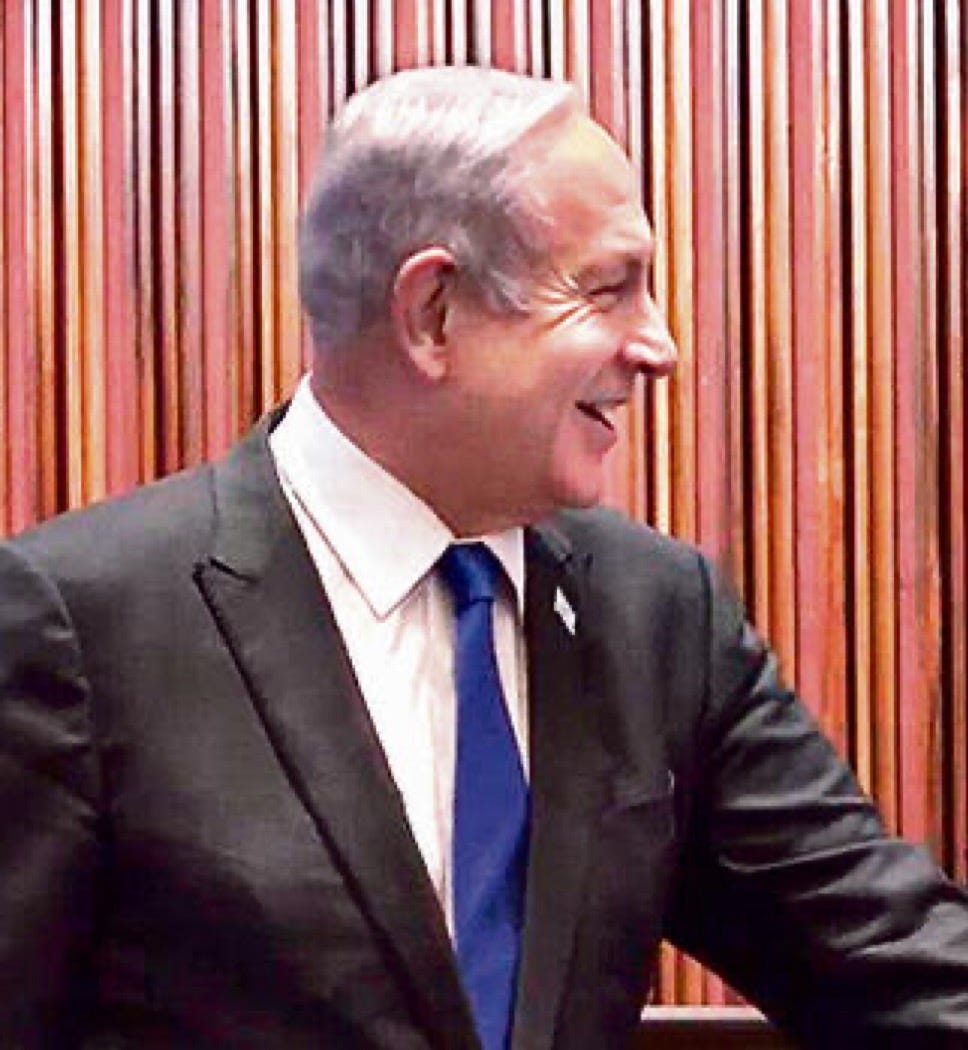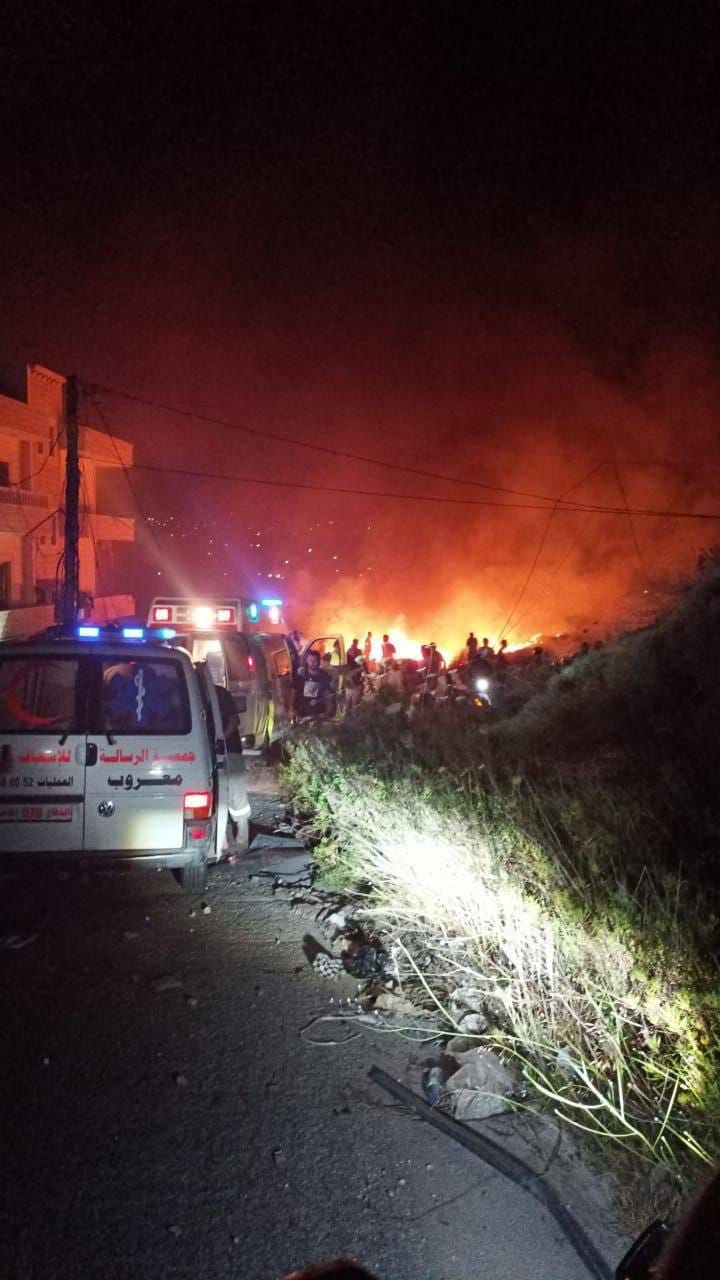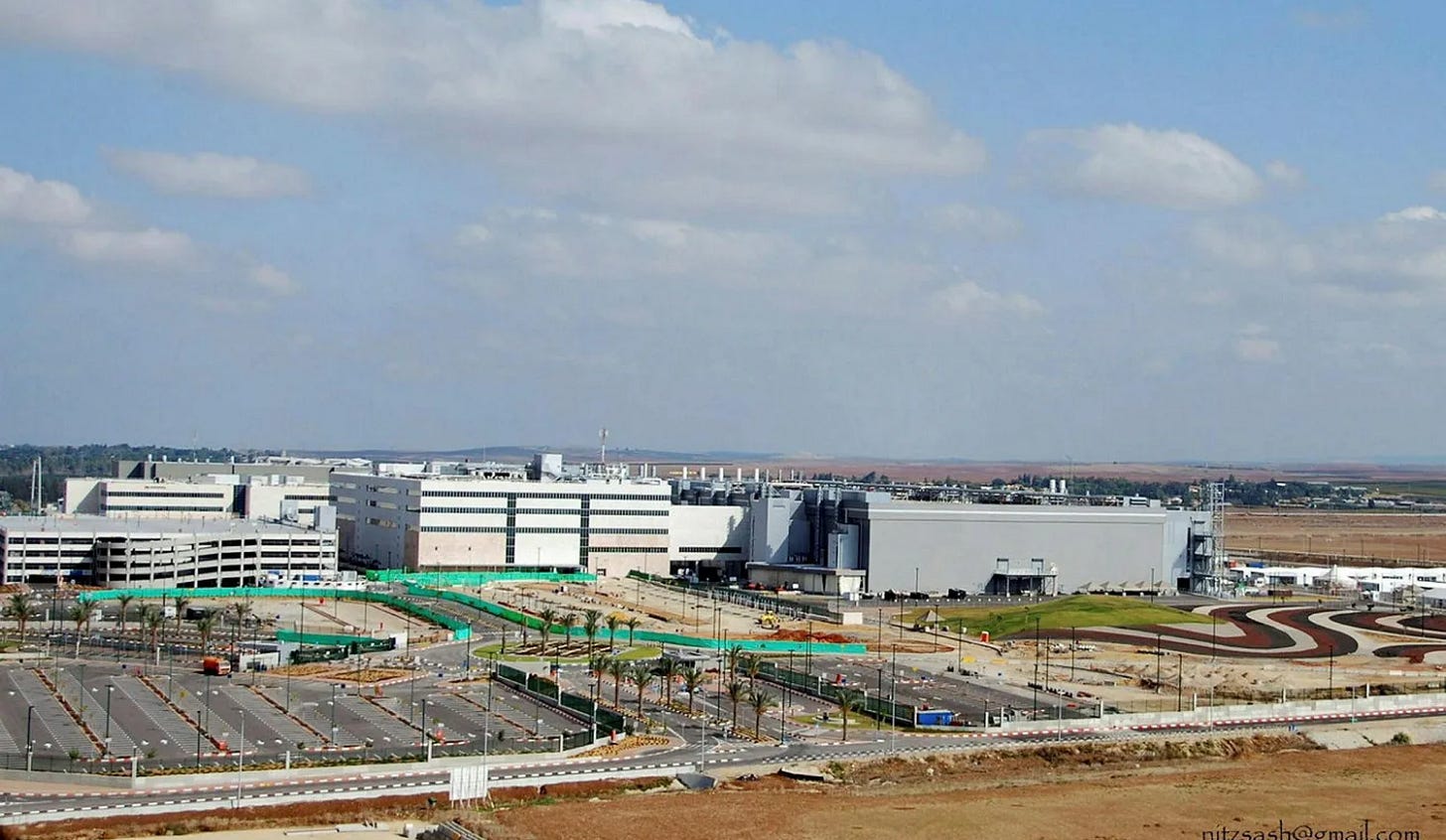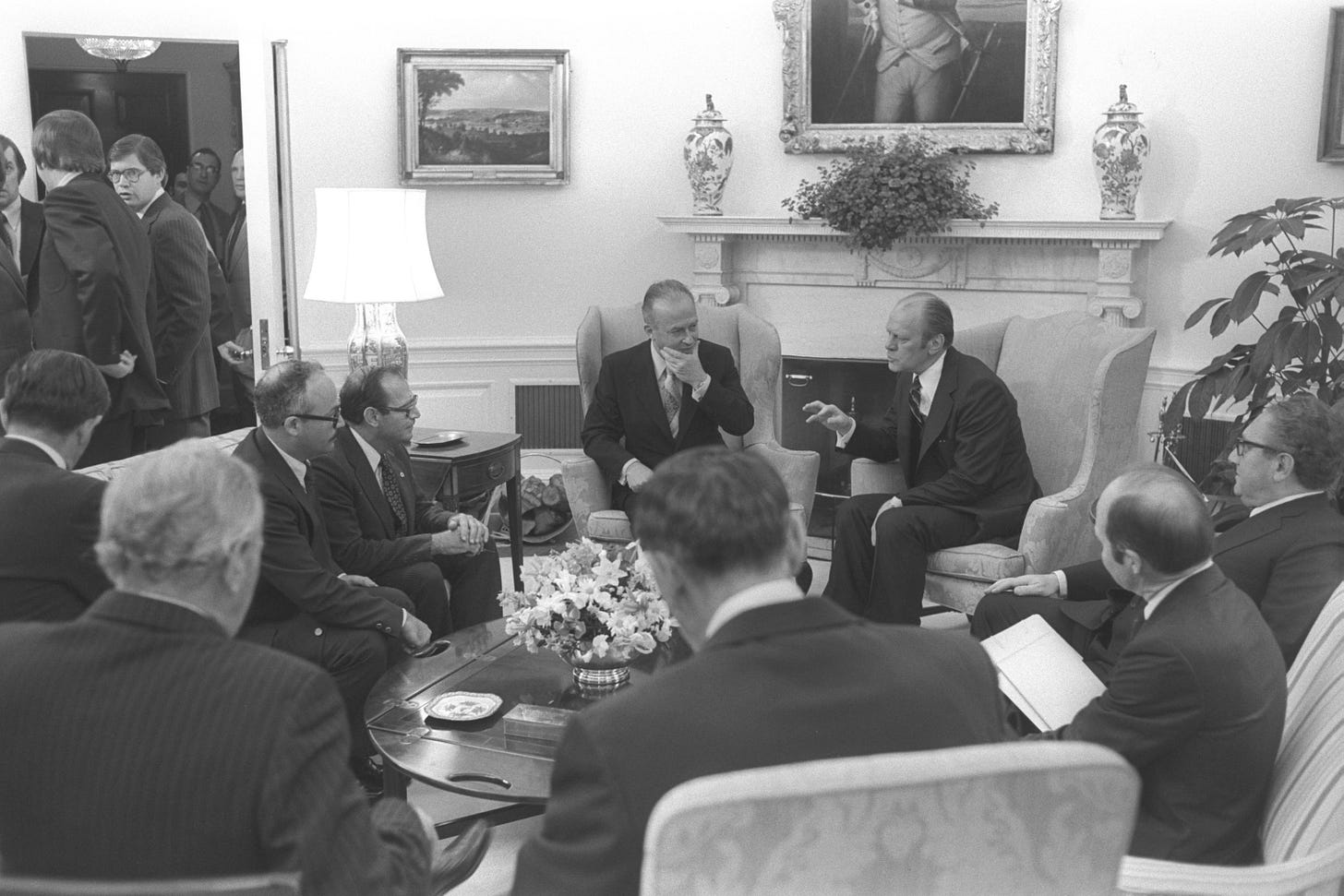DAY 251 OF THE WAR: Heavy Fighting in the North, Hamas Says "No" to Ceasefire - Now What? Antisemitism in New York
Tel Aviv Diary, June 13, 2024
Tuesday morning, we woke up to the news, which had already been widely known since the night before: four more soldiers had been killed in Gaza. On Monday afternoon, in an all-too-familiar scenario, the soldiers entered a booby-trapped building in Rafah. A very high percentage of our casualties in Gaza have resulted from similar incidents.

HAREDI DRAFT LAW — THE VOTING AFTERMATH
On Tuesday night, the Knesset approved the application of the continuity clause to the law that passed its first reading two years ago, exempting the Ultra-Orthodox from military service. Defense Minister Gallant was the only Likud Minister who had the courage to vote against the legislation, despite opposition from the entire remainder of the party. On Tuesday morning, various Knesset members who voted in favor of the bill the previous night described their votes as merely technical, asserting that they would not support the bill next week in the Defense and Foreign Affairs Committee.
A photo of Prime Minister Netanyahu smiling broadly after the bill’s passage has faced widespread criticism, particularly since it became public knowledge he already knew about the four soldiers who had been killed in Gaza just hours before. Netanyahu was smiling because he managed to take the first step to pass a law that would effectively exempt the ultra-Orthodox from serving in the IDF, preserving his fragile coalition.
LEBANON
On Tuesday night Israel killed a high ranking Hezbollah commander. The Army took official responsibility for the attack. Here is the statement released by the Army Spokesman regarding the targeted elimination:
Tuesday night, in an airstrike by fighter jets, a headquarters of the Hezbollah terrorist organization in the Jowaya area was attacked. This headquarters was used by the organization to manage attacks from southeastern Lebanon towards Israeli territory, and Sami Taleb Abdullah, the commander of Hezbollah's "Nasser" unit, was eliminated.
Sami Taleb served as one of the senior commanders of Hezbollah in southern Lebanon. For years, he planned, promoted, and executed numerous terror operations against the citizens of Israel. In the attack, three other terrorists from the organization who were with Abdullah were also killed.
On Wednesday, Hezbollah retaliated with the most extensive barrage of rockets, missiles, and drones seen in this war. In total, Hezbollah fired over 200 projectiles at Israel, expanding their attack range to include parts of the Galilee, such as Tiberias, which had not been targeted until now. The heavy barrages continued into Thursday, and although fewer in number, the attacks from 2 PM onward were relentless. A number of the rockets specifically targeted Northern Command headquarters in Safed, causing several fires. Hezbollah seems to be daring Israel to respond. While there is growing pressure for military action, I fear that taking such action will fail unless it is tied to a larger, comprehensive plan, something which the current government seems unable to agree upon.
Late this evening, it was reported that Israel attacked a house near Tyre. According to reports, at least one high ranking Hezbollah member was in the house.
GAZA: NO END IN SIGHT
On Tuesday night, Hamas gave their answer to the Israeli-American peace proposal. Their response was theoretically affirmative, but the multitude of conditions they attached effectively turned that answer into a rejection.
When asked about the state of the ceasefire negotiations, Secretary of State Blinken stated at a Press Conference in Qatar:
Hamas has proposed some changes to the offer on the table. We discussed them yesterday and today with the Prime Minister of Qatar. Some of the things are achievable and some are not.
Right now we are in this situation: Hamas could have said "yes", but instead, Hamas waited two weeks and then proposed more changes. Some of these go beyond what it has accepted in the past.
Blinken later responded to another question by saying:
As I said, based on Hamas's response, several changes were proposed to the agreement on the table, but some of them can be worked on, and some cannot. I don't want to elaborate further on this. At a certain point in negotiations, you reach a stage where if one side keeps changing its demands and raising requirements on what it has already agreed upon - you have to wonder if it is coming with good intentions or not. But based on what we have seen, we are determined to bridge the gaps. I believe they can be bridged.
Those who try to be optimistic— or more sympathetic to Hamas — explain Hamas’s actions as aiming to secure a deal that ensure a permanent ceasefire. However, this overlooks Israel's main concern. If, in the first stage, Israel has to withdraw from all of Gaza (as Hamas demands) and only gets back 20 hostages, what leverage would Israel have to force Hamas to release the remaining hostages? What if Hamas makes demands beyond the scope of the agreement? Finally, some of Hamas’s demands, such as the immediate start of reconstruction and the unrestricted import of goods into Gaza, are complete non-starters for Israel.
The reality is Hamas has no reason to want an agreement. Hamas believes it is winning and the world has turned against us. Moreover, Hamas does not care how many Gaza civilians are killed. Our military pressure does not seem to bother them, and the world has pressured us into sending more food and aid than had been entering Gaza before the war. Still, the UN agencies and others keep talking about a non-existent famine. We are at an impasse, with no plan for resolution. If they did not have our hostages, I would propose just leave Gaza, declare victory, and dedicate the next two years on a crash program to rebuild our army, in preparation future potential conflicts.
Wall Street Journal Article on Hamas's STANCES ON Civilian DEATHS
This WSJ article, clearly outlining the motives and objectives Hamas’s leader Yahya Sinwar’s, speaks for itself.
Gaza Chief’s Brutal Calculation: Civilian Bloodshed Will Help Hamas
WILLIAM COHEN INTERVIEW
William Cohen, a former Republican Senator who served as defense secretary during the Clinton administration, offers an interesting perspective on ceasefire negotiations:
Q: Where do you think, where do you see things right now?
Cohen: Well, I think the Biden plan is the best that we've seen put forward because it anticipates, number one, the hostages will be back. Hostages will be released. Palestinian prisoners will be released. There'll be a ceasefire. There'll be a process for having a separate independent state for the Palestinians, which they are entitled to and should have. So what's frustrating about this, and I think anyone who gets involved in Middle East diplomacy, it will either harden your heart or break it.
From Henry Kissinger to Donald Trump, John Kerry, Senator Mitchell, all who have put their shoulder against the wheel and pushed it toward a settlement have been unsuccessful. And I think Tony Blinken is at that point right now. He said everything is ready. And so it's almost a matching something from the Peanuts cartoon. And Lucy just snaps the ball away at the last second. Only it's not a cartoon. It's a catastrophe. But I think the mistake that in my judgment has been made is the notion that the Israelis have agreed to it.
When Sinwar sees that the Israelis are on board or seem to be on board, that gives him in his mind leverage, saying now I can hold back and demand more. So I think at this particular point, I think this is why Bibi Netanyahu has not publicly said he's for it. The moment he does, he's got a problem on his right in terms of the abandonment of the far-right. So he would take the government down. And so he's held back. I think what's happening here, Sinwar is misreading the public opinion. Public opinion may be with the Palestinians right now, but if they reject this opportunity, public opinion will turn against them.
U.S. Central Command Update
June 12
In the past 24 hours, U.S. Central Command (CENTCOM) forces successfully destroyed three anti-ship cruise missile (ASCM) launchers in a Houthi controlled area of Yemen and one uncrewed aerial system (UAS) launched from a Houthi controlled area of Yemen over the Red Sea.
Separately, Iranian-backed Houthis launched two anti-ship ballistic missiles (ASBM) from Houthi controlled areas of Yemen over the Red Sea. There were no injuries or damage reported by U.S., coalition, or commercial ships.
Additionally, one Iranian-backed Houthi unmanned surface vessel (USV) struck M/V Tutor, a Liberian flagged, Greek owned and operated vessel, in the Red Sea. M/V Tutor most recently docked in Russia. The impact of the USV caused severe flooding and damage to the engine room.
This continued malign and reckless behavior by the Iranian-backed Houthis threatens regional stability and endangers the lives of mariners across the Red Sea and Gulf of Aden.
LAST MINUTE CENTCOM UPDATE
Today the Iranian-backed Houthis launched two anti-ship cruise missiles (ASCM) into the Gulf of Aden. Both missiles struck M/V Verbena, a Palauan-flagged, Ukrainian-owned, Polish-operated bulk cargo carrier. M/V Verbena most recently docked in Malaysia and was en route to Italy carrying wood construction material.
M/V Verbena reported damage and subsequent fires on board. The crew continues to fight the fire. One civilian mariner was severely injured during the attack.
Aircraft from USS Philippine Sea (CG 58) medically evacuated the injured mariner to a partner force ship nearby for medical attention.
This continued reckless behavior by the Iranian-backed Houthis threatens regional stability and endangers the lives of mariners across the Red Sea and Gulf of Aden. The Houthis claim to be acting on behalf of Palestinians in Gaza and yet they are targeting and threatening the lives of third country nationals who have nothing to do with the conflict in Gaza. The ongoing threat to the ability to safely transit the region caused by the Houthis makes it harder to deliver critical assistance to the people of Yemen as well as to Gaza. U.S. CENTCOM will continue to act with partners to hold the Houthis accountable and degrade their military capabilities.
ANTISEMITISM IN THE USA
In the past few days, there have been many serious incidents of antisemitism in New York— including the protests at the Nova exhibition, vandalism of the homes of the Brooklyn Museum's director and board members, and the terrifying incident of the intimidating, masked gang chanting “raise your hand if you’re a Zionist” on the subway earlier this week. The overt nature of these antisemitic acts compelled two New York area Congressional representatives most identified with their anti-Israel position, Rep. Jamal Bowman and Rep. AOC, to attempt to separate between their anti-Israel views and antisemitism. The reactions their statements elicited have been particularly notable
.
Izabella Tabarovsky wrote an interesting long tweet in response to the Congress members’ remarks:
The blinding rage directed at AOC & Bowman for daring to utter the word ‘antisemitism’ in relation to the pogromist mobs outside the Nova exhibit is something to behold.
I don’t take condemnations of antisemitism from these two as a sign of serious intention or allyship. They are complicit in creating the current climate, & their condemnations are cynical & politically-driven. But responses they are getting from their progressive-Islamist friends tell us something important about this moment.
Over the last few years there’s been a campaign going on to disarm, distort & discredit the very term ‘antisemitism.’ One time-tested technique here is to create so much confusion & controversy around the term that people would feel too hesitant to condemn antisemitism or speak of it at all.
This campaign has been decades in the making, but it picked up new energy during the last Hamas-Israel war in 2021. A few examples:
In May of 2021, Sanders’ national surrogate Amer Zahr called on activists to stop condemning antisemitism: “Don't condemn sh**, we have a cross-sectional, intersectional movement that is winning… Stop it. Stop it. Stay focused. Say free, free, free Palestine and nothing else. (m.jpost.com/international/…)
Soon after that, SJP mobs forced Rutgers to withdraw a statement condemning antisemitism. Rutgers complied, promising to be more “sensitive & balanced” in the future. (timesofisrael.com/rutgers-univer…)
Then there was the case of April Powers, a Black Jewish DEI professional who had to resign from her job after she put out a statement condemning antisemitism. (forward.com/news/472289/eq…)
Back in 2021 this all seemed shocking. Today it’s become completely normalized.
Constant claims that anti-zionism is not antisemitism are playing a massive role in creating confusion & intimidation around the issue.
By condemning antisemitism on their side of the political spectrum, however insincerely, AOC & Bowman have put a wrinkle in the progressive-Islamist clique’s ongoing effort to portray antisemitism as something Jews imagine & manipulate for their own benefit, including to silence criticism of Israel. Hence the rage.
In the current climate, even cynical, politically-driven condemnations of antisemitism on the left by the left matter because they signal to their followers that antisemitism is real & exists on their side of the aisle. Meanwhile, reactions to these condemnations show that any leftist daring to step outside the progressive-Islamist line on Jews will face the below & worse.
A WORTHWHILE READ
BUSINESS
Last January, the infrastructure company Lesico won a tender conducted by Intel to handle the prefabrication and installation of mechanical piping assemblies at the new plant (Fab38) that the American chip giant is constructing in Kiryat Gat. However, on Tuesday Lesico announced in a report to the stock exchange that it received a notification from Intel. The notice stated that “due to an ongoing review of the required completion timelines for the project, an order was given to halt some of the work on the project.”
The full extent of the work stoppage at Intel's massive plant under construction in Kiryat Gat remains unclear. Yesterday, the American company issued a general statement to the media, affirming its continued commitment to Israel and that "managing a project of this scale, especially in our industry, typically involves adjustments to schedules. Our decisions are based on business conditions, market dynamics, and responsible capital management."
–––––∞–––––∞–––––∞–––––∞–––––∞–––––∞–––––∞–––––
A PIECE OF HISTORY
Sinai II Agreement
Golda Meir had been reelected Prime Minister in December 1973. Shortly thereafter, the initial reports of the Agranat Commission were released, which attributed blame to the military leadership, and not to the political leaders. Despite the Commission’s assessment, public pressure on Golda intensified, and in April 1974, she resigned. Yitzhak Rabin was chosen by the Labor Party’s central committee to replace Meir.
US Secretary of State Henry Kissinger, eager to build on his early disengagement agreements, sought to advance further accords between Israel and its neighbors. It soon became apparent that the only real option was to pursue a further agreement with Egypt. The challenge was that Israel was being asked to give up land, while the most they could expect to get back from Egypt was some form of non-belligerence.
Kissinger explained Israel’s stance to President Gerald Ford, who had replaced President Richard Nixon:
Rabin and the other leaders are grappling with the dilemma of history and logic. The history has been one of pain, anguish, suspicion, suffering, and four costly wars. The logic is that the risks of standpatism are far greater than realistically facing up to necessary step-by-step compromises essential for progress towards a settlement because the choices they [Israel's leaders] will face a year from now if they let the situation drift will be much worse than those they face now. ... We have an abiding interest to support Israel's security; but our interests in the area go beyond any one country.
... Our strategy of segmenting the issues that divide Israel and its neighbors into negotiating units that are politically manageable... is based on the belief that a progressive series of limited agreements could create new situations which in turn will make further agreements possible.
Kissinger worked to persuade Israel to agree to a withdrawal from Sinai in exchanged for assurances from Sadat to refrain from military actions. Kissinger shuttled back and forth between Cairo and Jerusalem.
In March 1975, Kissinger delivered the following letter from Rabin to Sadat:
My people have to know that through the process of withdrawal to a new agreed line we have reached a turning point and that we are now entering an era in which we will be able to settle all our differences by peaceful means only.
As Prime Minister, I must be able to convince both people and the Government in Israel that in surrendering physical strategic positions, we shall not be exposing ourselves to increased hardships created by lengthier and inferior lines in a resumed conflict. This can be possible only if it is visibly shown that the act of withdrawal marks the real beginning of progress toward peace through deeds and words that demonstrate the intention of peace.
Sadat asked Kissinger to orally respond to Rabin by relating:
What I want Yitzhak Rabin to know is the spirit behind the phrases of peaceful intent which we are negotiating. My attitude is that power will never again play a role in the relations of our two peoples. I will try to handle the Arab people if Rabin handles the Israeli people. My determination is to bring about the ultimate withdrawal to agreed lines by peaceful means only. If a Geneva conference is assembled after this agreement is signed, I will not touch this agreement or change anything between us at Geneva. Assure Rabin from my side I am not dreaming of solving this at Geneva.
Whatever the problems, I will not use force. I would be ready to meet Rabin whenever the Israeli occupation of Egyptian territory is ended.
Despite Sadat’s positive statements, an agreement could not be reached. Israel was unwilling to make the concessions that Kissinger believed necessary. Before Kissinger left the region, ending the round of negotiations, Rabin said to him:
I want you to know that the story will not end there. As you reflect on next steps, you should remember this: I feel about every soldier in the IDF (Israel Defense Forces) as if he were my son. And my son is now in the IDF; my son-in-law is commanding a tank battalion in the Sinai.
On the plane home, Kissinger expressed his frustration with Israel’s inability to make the concessions needed. Once he got back to Washington, Kissinger convinced President Ford to talk about the possibility of a reassessment of the US relationship with Israel. The Americans would not give up and continued to push for negotiated agreements. Rabin came to Washington in June and met with Ford. At their meeting Ford opened, saying:
I want to say to you that I am disillusioned; I am disappointed and disturbed. I am disillusioned over the results of last March. I believe that Israel could have been more frank in the crunch. I was disillusioned over the inflexibility of Israel at the final testing point. I understand your political problems in trying to be more forthcoming, but I have to say to you that I was disappointed, disturbed, and disillusioned over the position taken.
Nevertheless, Kissinger pressed ahead to get an agreement and made a breakthrough when it was suggested that the US place Americans at warning stations in the Mitla and Gidi Passes. On September 1, 1975, an agreement was reached. Israel would pull its troops back to the Eastern sides of the Passes, and it would relinquish the Abu Rudies oil field. In return, there would be large areas of the Sinai on the Egyptian side that would be largely demilitarized, and the US would establish the Sinai Support Mission to monitor compliance. Sadat declared, “Let us create a new atmosphere and let us reach the state of nonbelligerent officially and with guarantees.”
On a personal note, as a result of the Sinai agreement with Egypt, I spent two weeks of my basic training with the IDF in Sinai, removing minefields and barbed wire to enable Israel to move its lines back to the other side of the passes.









That may be true but we allowed ourselves to be dependent on the US. And our economy is very much dependent on us being part of the world
The war is only existential from a psychological perspective. Neither Hamas nor Hezbollah can destroy us. Iran that could be a different matter